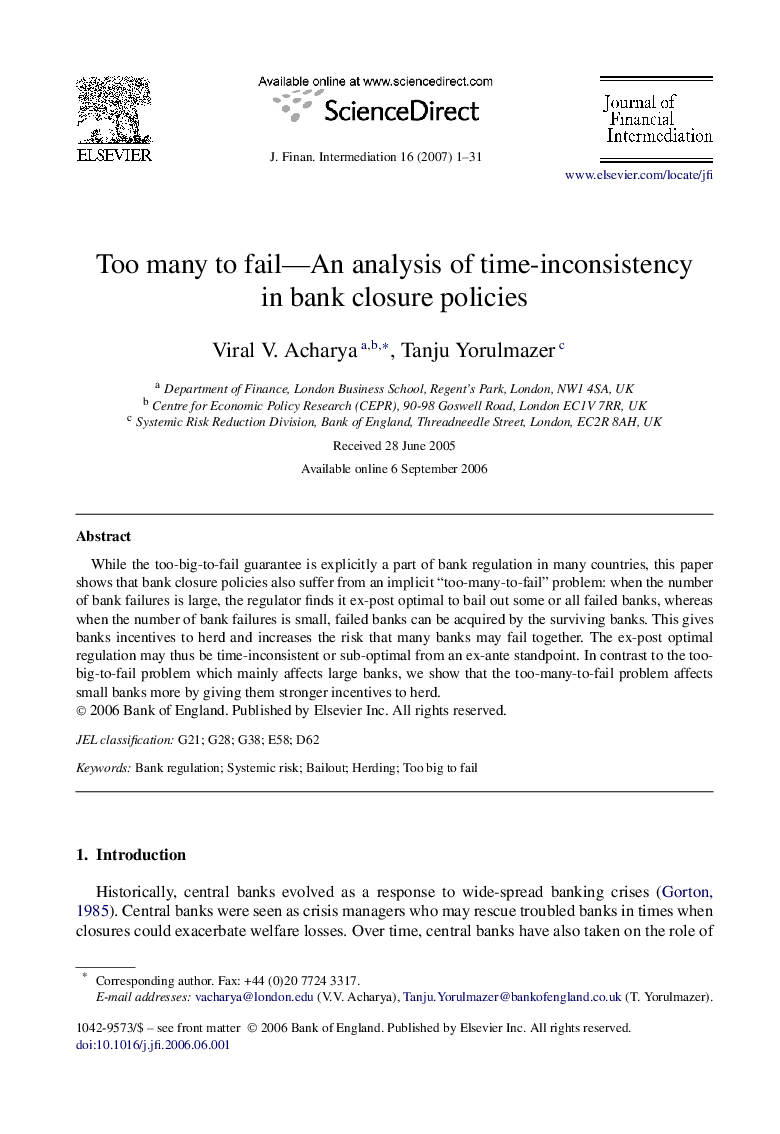| Article ID | Journal | Published Year | Pages | File Type |
|---|---|---|---|---|
| 960786 | Journal of Financial Intermediation | 2007 | 31 Pages |
Abstract
While the too-big-to-fail guarantee is explicitly a part of bank regulation in many countries, this paper shows that bank closure policies also suffer from an implicit “too-many-to-fail” problem: when the number of bank failures is large, the regulator finds it ex-post optimal to bail out some or all failed banks, whereas when the number of bank failures is small, failed banks can be acquired by the surviving banks. This gives banks incentives to herd and increases the risk that many banks may fail together. The ex-post optimal regulation may thus be time-inconsistent or sub-optimal from an ex-ante standpoint. In contrast to the too-big-to-fail problem which mainly affects large banks, we show that the too-many-to-fail problem affects small banks more by giving them stronger incentives to herd.
Related Topics
Social Sciences and Humanities
Business, Management and Accounting
Strategy and Management
Authors
Viral V. Acharya, Tanju Yorulmazer,
